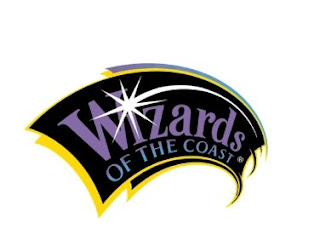Gaming historian ben Riggs recently revealed the second letter that Dave Arneson sent to WotC in 1997. Although Riggs' work is generally excellent, the context in which these two letters are revealed serve little more than to confirm old biases. I already talked about the first letter where Dave Asked to be made manager of TSR after WotC's acquisition of the D&D publisher.
This letter, which clearly was not intended for public consumption, may easily be seen as clumsy. Dave's cavalier style may easily bring out laughs, especially knowing how Dave's dream of running TSR was never achieved. Those hoping that Dave would provide an impressive analysis of the state of TSR or provide grand visions for the future of the company are understandably disappointed.
While some would say that the letters speak for themselves, context is everything. Even the best gaming historians are easily caught up in an existing narrative. Riggs certainly does seem to have a great deal of sympathy for Dave. But the preexisting narrative is one that was defined largely by TSR's propaganda machine of the early days. The image of Dave as largely incompetent would ideally serve to support the claim that Dave in fact had no claims to his credits as co-author of D&D and thus having no basis for his legal actions against the company. These old falsehoods have largely been disproved, but the narrative still exists especially among those who for various reasons have decided to vocally express disdain towards the game designer even long after his passing.
Dave Arneson was clearly not a perfect genius. His frequent spelling mistakes are well known. Although he had many good friends, he also made enemies and some describe him as socially awkward. Some of these flaws are demonstrated in his letters to WotC. Those of us who have an interest in Dave Arneson however, are also well aware of his good qualities. The games he organised for gamers in Minnesota, including Napoleonic Wargames, the Proto-D&D Blackmoor and others were cherished and he was described as an incredibly enthusiastic and innovative player. Before they worked together on D&D, Dave was a regular contributor to Gary's fanzines and together they had already published a set of naval wargaming rules, Don't Give Up The Ship. Later in his career, Dave helped form two RPG companies among his other endeavours.
Context is everything. Riggs article asks the question of whether Dave would have been the right person to run TSR. His conclusion is not surprisingly "no". I don't disagree with this conclusion. The point of this blog was never to present Dave Arneson as a flawless demigod. The point of this blog was to examine the actual qualities Dave did possess. Qualities that did bring him the admiration of fellow gamers and made Gary Gygax want to create D&D with him in the first place. In my opinion, these qualities had more to do with creativity and innovation than administration or writing sales pitches. Dave clearly possessed these qualities in 1974. Had he lost these qualities by 1997? While I understand that many readers were hoping for more impressive ideas for the future of D&D than the ones presented in the second letter, I am not sure we can make such a conclusion from these letters alone. The main conclusion I think we can reach from the letters is that Dave was still in love with D&D and that he still longed for involvement with the game, so many years after he had left TSR. Instead of mocking, we could take this moment to contemplate the human being of Dave at this time in his life.
I maintain that the real tragedy for the gaming world is that Dave and Gary were both ultimately prevented from pouring as much of their creative energy into our hobby as they could have given the right circumstances. It was a tragedy for them personally, but also for us fans who were never able to enjoy what might have been. In Dave's case, he remained friends with Peter Adkison, even though Peter did not grant him the position he had asked for. He was allowed to be involved with D&D under WotC even if in a limited capacity and he was given a chance to introduce Blackmoor to fans of two editions of D&D published by WotC. So even if this story has a lot of tragedy, I think there was at least some happiness towards the end.
More discussion of this article at The Comeback Inn!
-Havard






If someone thinks they can judge how well Dave would have run TSR based on those letters, they need to listen to the podcasts Ben Riggs has published, and read his books. Gary and the Blumes, and the ones that came after them, all come across as bumbling fools and petty tyrants. Terrible businessmen all!
ReplyDeleteHi Andreas! I have just started reading his book. Will try to find those podcasts too. :)
DeleteThe thing is that after the release of the d20 SRD Dave, Gary, and other TSR Alumni had the tools to realize various projects. Granted, Dave and Gary did not live to see the stuff that the OSR made. So it wouldn't surprise me that the crunchy nature of 3.X was a turn off creatively.
ReplyDeleteAlso using open content was new thing for folks that were used to a world of traditional copyright, authors, publishers, distributors, and store. It would have been nice if stuff was shifted a decade so they could have taken advantage of it.
Hi Rob! Good seeing you here. I think you make a very good point. I wonder what could have been! :)
DeleteGuy isn't very good at writing a business letter? Well, OK. Let's just continue to enjoy his creative contributions to our lives. :)
ReplyDelete